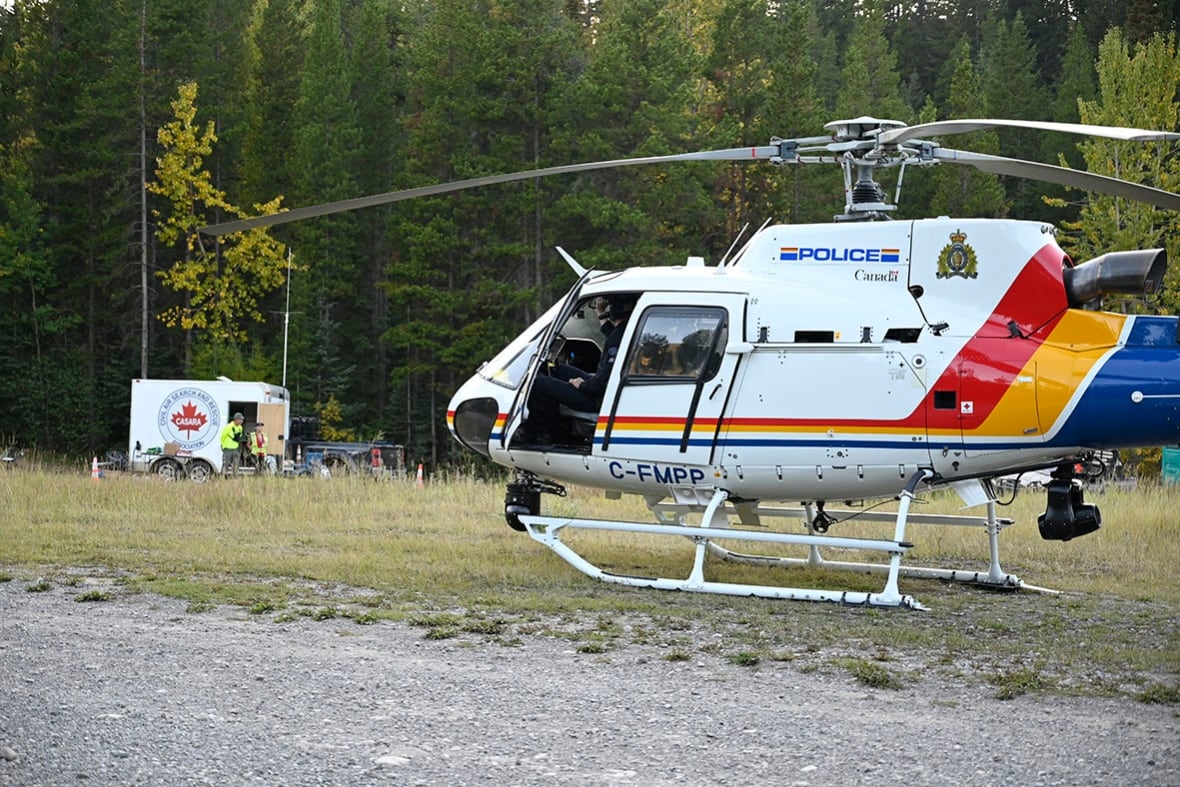More than a week after he went missing, the family of six-year-old Darius Macdougall has been told “the survivability is less than five per cent” for the boy at this point in the search, said Alberta RCMP Cpl. Gina Slaney.
Macdougall was last seen Sunday, Sept. 21. One week later, the search for him continues, with approximately 200 personnel from three provinces now involved.
The “less than five per cent” survivability figure was reached “considering the terrain, exposure to the elements, and the amount of time that this search has gone on,” Slaney said.
The search for Macdougall has not been scaled back, and there are no plans to do so at this time, but crews “are approaching things differently,” Slaney said.
“We are still out there in full force searching,” she said.

No evidence of Macdougall’s whereabouts has been recovered from the scene yet, Slaney said.
Slaney said foul play is not suspected at this time, but “all investigational avenues” have been taken into consideration since the search began.
Macdougall was reported missing at 11:33 a.m. on Sept. 21, after he didn’t come back from a walk with six non-adult family members near a campsite in Island Lake Provincial Recreation Area. The site is located near the Alberta-B.C. boundary in the Crowsnest Pass, approximately 235 kilometres south of Calgary and 157 kilometres west of Lethbridge, where his family lives.
He is described as being four feet tall with short brown hair, and was last seen wearing a blue-grey hoodie and sweatpants. Police initially said he was five years old, before correcting his age to be six.
Autism presents unique challenges
According to police, Macdougall is autistic and while he is verbal, he may not respond to his name. To circumvent the challenges this poses, special search tactics have included playing Macdougall’s favourite song and avoiding the use of loud noises during the search.
Search-and-rescue expert Robert Koester, who wrote Lost Person Behavior: A Search and Rescue Guide on Where to Look – for Land, Air and Water, told CBC News searching for children with autism is more common than one might think, in his experience working in Virginia.
“The major challenge with autism is in some cases they’re non-responsive, so if you shout their name they can’t call back,” he said. “In other cases, you shout their name and they don’t want to call back because they may be afraid.”
“Detecting somebody in dense woods who’s actively trying to hide from you becomes extremely difficult,” Koester said. “This is where sometimes maybe the infrared sensors can help. Dogs can help in some of these situations, but making a visual find, even when you know you should go and look in every dense place of wood you can see, it’s really difficult.”
He said additional challenges may include “actively hiding from searchers” and that missing people with autism tend to be found in structures.
“If you’re truly out in the woods, where there are no structures around, they sometimes have a tendency to crawl into the thickest … tightest, densest vegetation possible,” he said.
Koester said while a child under the age of three may not understand that they are lost, one over that age, like Macdougall, would be aware of that fact.
“They know something is wrong. They are going to be experiencing a fight, flight or freeze mode, which is an intense emotional reaction to the situation,” he said.
The search continues
“Given this unfortunate stage of the search, some tactics will be changed and ground search methods will be adjusted to reflect this,” said Adam Kennedy with Alberta Search and Rescue.
As of Saturday, RCMP Tactical Support Group specialists were on the ground, deploying shoulder-to-shoulder search tactics, in addition to searchers from Alberta Fish and Wildlife, the Alberta Sheriffs, and other crews, including trained volunteers and personnel from Saskatchewan and British Columbia.
In addition to crews scouring the forested terrain and bodies of water around the site, searchers have deployed dogs, a helicopter, and drones equipped with software capable of analyzing footage too small to be seen with the naked eye, to locate any evidence of Macdougall’s whereabouts.

Search tactics used by aircraft have been shifted to solely using cameras to search the ground, rather than infrared sensors, Kennedy said
“It will change the use of some of the infrared technologies on the assumption that the [infrared] technologies won’t be picking up any heat signatures on the ground,” he said.
Kennedy said cadaver dogs have not been brought in, to his knowledge, but that crews have “changed the use of the search dogs on scene.”
Public asked not to join search
Kennedy has thanked members of the public for expressing interest in joining the search, but insisted that efforts on the ground be left to trained professionals.
With the forested search area comprising rough terrain, there’s a risk of injury to untrained searchers, authorities said. Any injury in the area could divert resources from the search.
In addition, a NOTAM is in place, banning the use of recreational drones over the search area.

However, help from the community is welcome in other ways.
The Municipality of Crowsnest Pass has set up a public information centre in the Crowsnest Sports Complex, where maps of the search site are available. It’s a drop-in centre for the community to share “any recent observations, dates/times, locations, photos or video, notes about outbuildings, shacks, caves, rock outcroppings, or secluded areas or anything else that might be helpful to the search,” according to the municipality’s website.
www.cbc.ca (Article Sourced Website)
#chance #survival #6yearold #Alberta #boy #missing #week #RCMP #CBC #News
